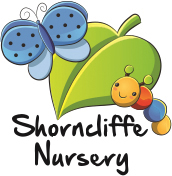How will the setting adapt the Early Years Foundation Stage curriculum for my child's needs?
At the nursery we observe, assess and plan for each individual child in our setting. We look at the three prime areas and four specific areas of the Early Years Foundation Stage. We make sure our planning is well informed, has access to good quality activities, resources, and is then evaluated for next steps to be formed. We use your child’s interests to map our planning so we know they are interested and will enjoy the experiences on offer.
- The nursery provides a language rich environment offering Nepali spoken also.
- Targeted small group work – using every child is a talker or the “I can” talk programme
- Provides resources to be borrowed and taken home
- The nursery links with other professionals, such as the children’s centre, speech and language, portage and advisers.
- Cultural needs and inclusion
- Outdoor learning throughout the nursery sessions
- Wellbeing and involvement groups
The nursery believes in fun, stimulating activities that will engross the child into learning through play. Your child’s key person will observe your child’s development, likes and dislikes and individual plan for their needs, though. The Early Years Foundation Stage (EYFS) that sets standards for the learning, development and care of children from birth to 5 years old. All schools and Ofsted-registered early years’ providers must follow the EYFS. We do this in seven areas that are then split into aspects:
Personal, Social & Emotional Development
We look at children’s relationships and how they interact with others. Their self-confidence and awareness and how they manager their feelings and awareness. They may take part in activities in groups, helping each other, photos of family members, role play games, books, puppets and mark making.
Physical development
We look at each child’s moving and handling and their health and self-care. This may include cooking and healthy snacks, learning how we get dressed or brush our hair, or go to the toilet independently. How we move around objects and space. How we move in different ways and speeds. Allowing them a range of objects to move and handle.
Communication & Language
We look at children’s listening and attention, their understanding and their speaking. We have a wide range of activities such as books and songs, role play resources. Distinguishing between different things. We do this in all our activities and make sure our staff are constantly talking and listening to what the children say.
Literacy
We look at Reading, and writing, in a number of ways such as early writing skills, making marks on paper, sand play water and brushes, painting with smaller objects and straitening the finger muscles. We look at different print and languages and pictures, soft play and puppets, making marks on different surfaces in different ways, strengthening our arm and shoulder muscles. The older children begin singing phonics in fun ways.
Mathematics
We look at numbers, shape space and measure, in activities such as water play, rice lentils and pasta, scales. Magnets and connecting toys. We sing a range of number songs and use mathematical langue in all our activities from building in the construction area to making a telephone call in the home corner. Skittles and ball games. We separate objects in many different ways and like to make models.
Understanding the world
We look at people and communities, the world and technology. We have a range of ICT equipment that is available to the children, but we also look at how we make sounds happen, everyday objects and how we can use them for a purpose, pushing and pulling. Play back voice recorders and programmable toys. We look at nature and what’s around us and when things change, not just in this country. We look at books and celebrate different cultures and cooking. Role play and working together. We enjoy looking at people who help us, who are important to us and who we recognize.
Expressive art and design
We look at exploring and using media and materials and being imaginative. We like to use as many resources in as many ways as we can, using objects or our whole body. We enjoy sensory play and exploring what things are in depth. We look at how to express ourselves in other ways such as music and movement. We are imaginative and look at how we can do things together and differently. We widen role play and make it into the child’s interest. Or visit different places.

